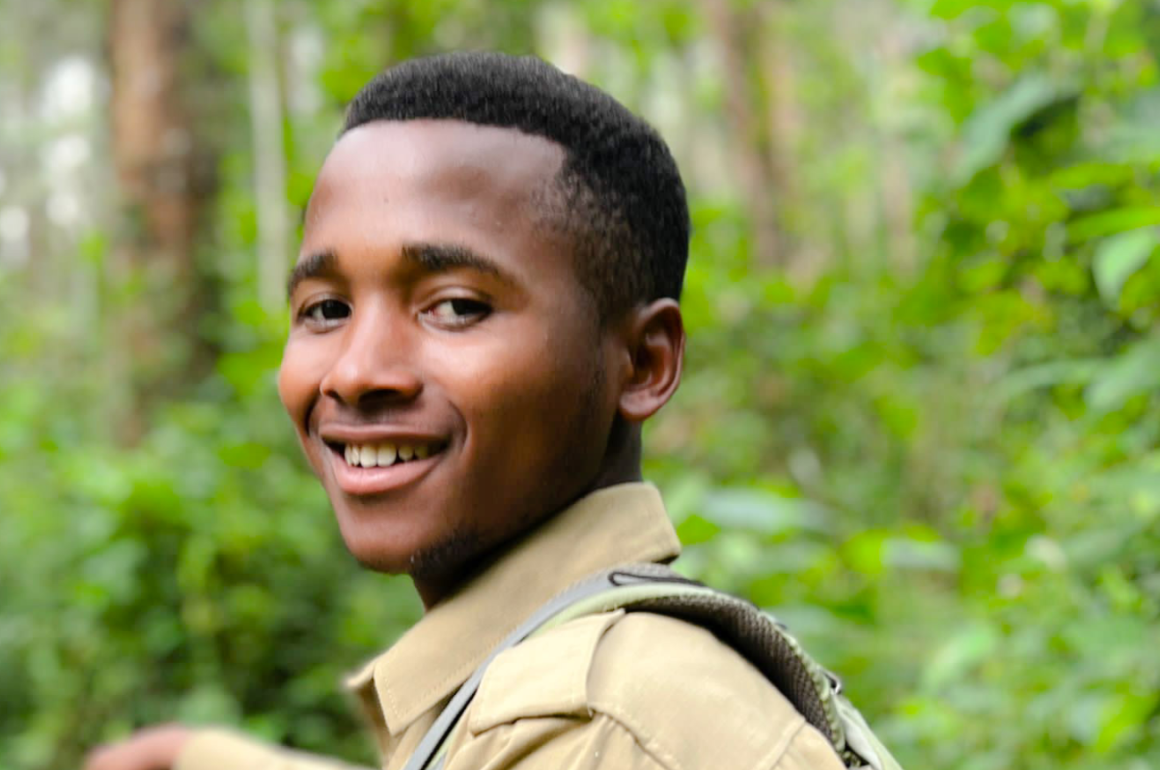
What is your favorite bird species?
My favorite bird species is the Great Blue Turaco.
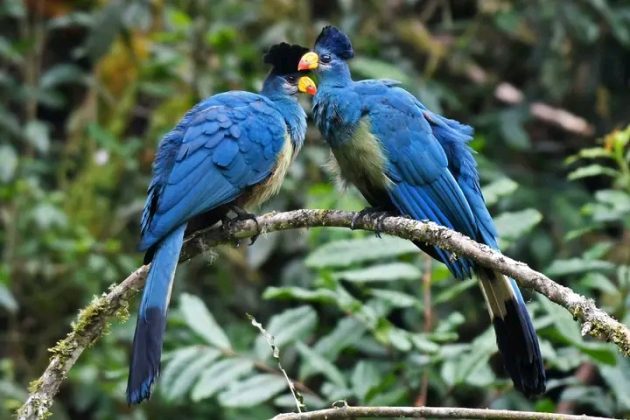
What is your name, and where do you live?
My name is HABIMANA Jacques, from Rwanda.
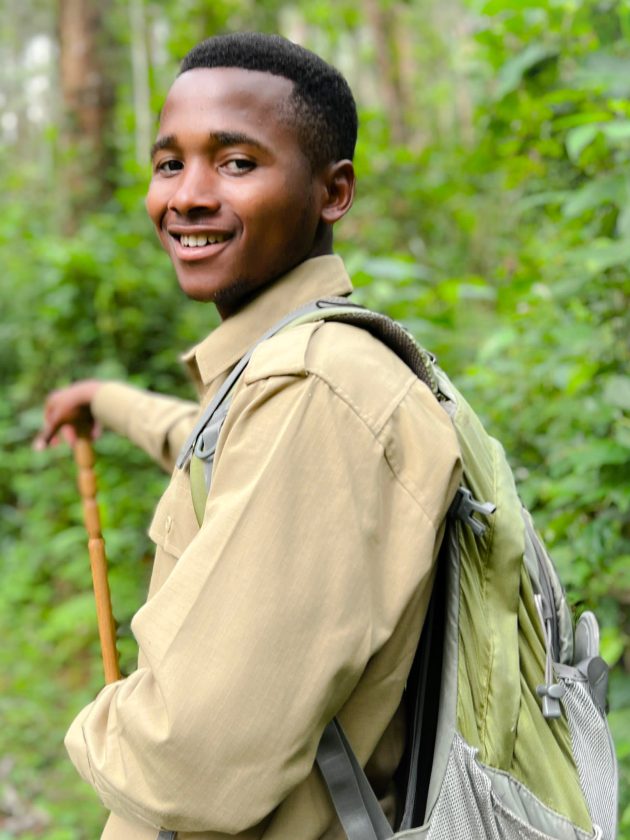
What are the main regions or locations you cover as a bird guide?
I’m based in Nyungwe National Park and am a bird guide there and at Akagera National Park, Lake Kivu, Rugezi Swamp, and Kigali.
How long have you been a bird guide?
I’ve been guiding for 3 years.
How did you get into bird guiding?
I learned about birds from my father, from my childhood.
Red-throated Alethe
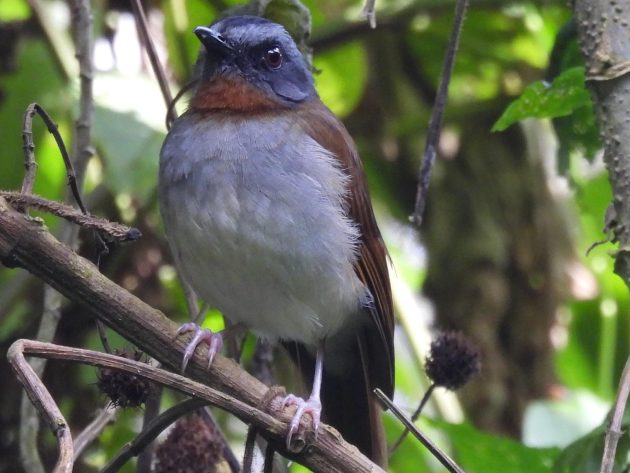
What are the aspects of being a bird guide that you like best?
- Connecting with Nature: There’s a deep satisfaction in observing and sharing knowledge about birds in their natural habitats.
- Educational Impact: Helping others learn about bird species, their behaviors, and ecosystems can be very fulfilling.
- Diverse Experiences: Every day can be different, with new bird sightings and varied environments, making the job dynamic and engaging.
- Community Engagement: Building relationships with fellow bird enthusiasts and contributing to conservation efforts is rewarding.
Which aspects do you dislike most?
- Weather Challenges: Inclement weather can make bird watching and guiding less enjoyable and more difficult.
- Physical Demands: Long hours of walking or hiking in various conditions can be physically taxing.
- Unpredictability: Birds don’t always follow a predictable pattern, which can be frustrating when trying to show specific species to clients.
- Dealing with Inexperienced or Disruptive Clients: Sometimes, managing clients who are less experienced or disruptive can be challenging.
Overall, the role combines the joy of nature with the occasional difficulties of working outdoors and managing diverse client needs.
What are the top 5-10 birds in your region that you think are the most interesting for visiting birders?
- Great Blue Turaco
- Regal Sunbird
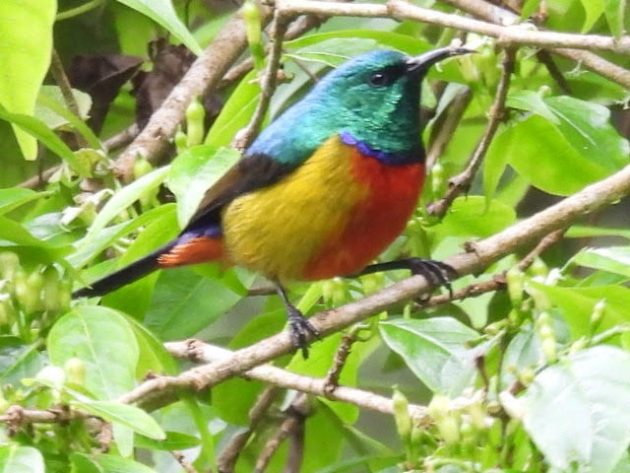
- Rwenzori Apalis
- Abyssinian Ground Thrush
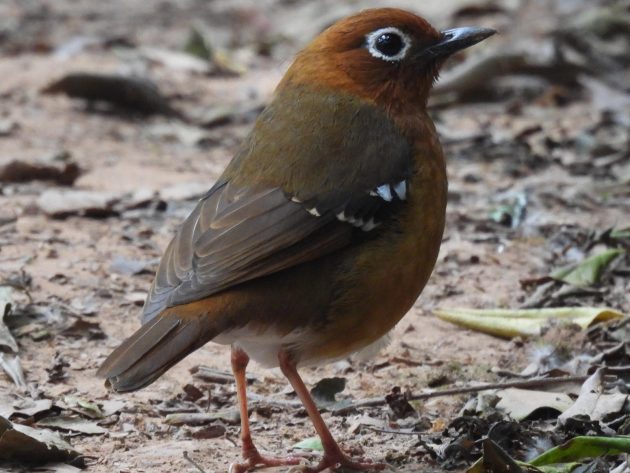
- Handsome Spurfowl
- Black-throated Apalis
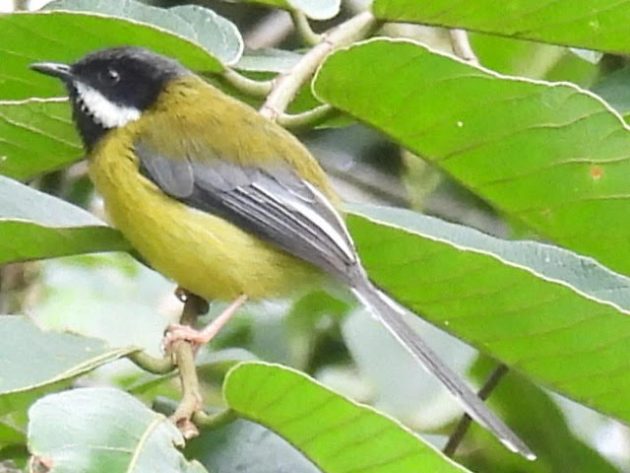
- Archer’s Robin-Chat
- Doherty’s Bushshrike
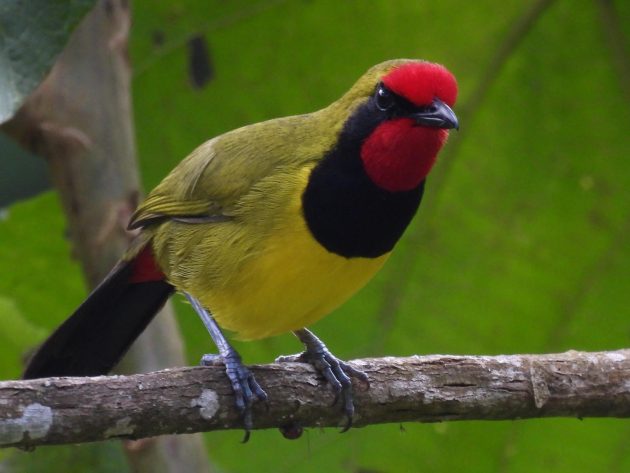
- Rwenzori Turaco
- Yellow-bellied Wattle-eye
- Rwenzori Batis
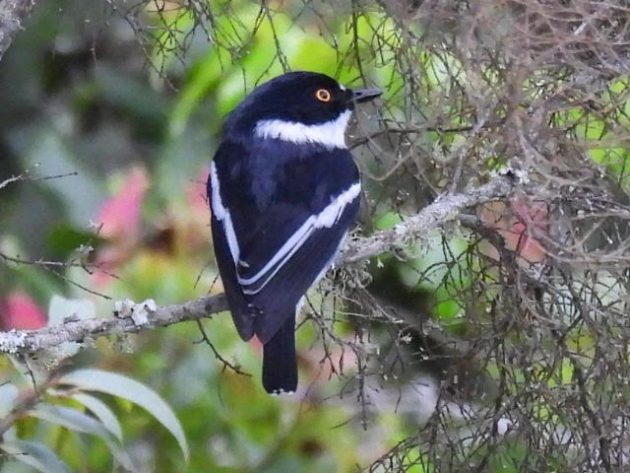
Can you outline at least one typical birdwatching trip in your area? Please briefly describe the locations, the key birds, and the approximate duration of such a trip
The best place to do birdwatching in my area is Nyungwe National Park, especially the Igishigishigi trail. It is a trail of 2km that takes 1.5 hours for a round trip. It is home to Albertine rift endemics such as Grauer’s Warbler, Rwenzori Turaco, Albertine Boubou, Many-colored Bushshrike, Rwenzori Batis, Handsome Spurfowl, Yellow-eyed Black Flycatcher, Mountain Buzzard, etc.
For foreign birders who have not been to Rwanda, I recommend doing any of the following:
- 5-day tour in Nyungwe National Park for Luhdher’s Bushshrike, Albertine Boubou, Kungwe Apalis, Blue Malkhoha, …
- 3-day tour in Kigali wetlands for Hammerkop, Little Egret, Southern Red Bishop, Black crake, …
- 4 days at Akagera National Park for Helmeted Guineafowl, Marabou Stork, Knob-billed Duck, …
- 2 days at Volcanoes National Park for Red-tufted Sunbird, Regal Sunbird, …
- 1 day at Gishwati-Mukura National Park for Great Blue Turaco, Chestnut-throated Apalis,. ..
- And Lake Kivu shore for African Fish Eagle, Fan-tailed Widowbird, Hadada Ibis, Squacco Heron, …
African Golden-breasted Bunting
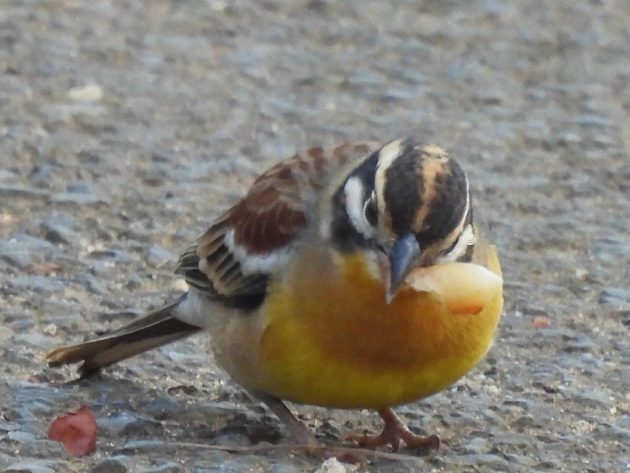
What other suggestions can you give to birders interested in your area?
For birders interested in birding here in Nyungwe National Park, as well as in Rwanda in general; here are some general suggestions:
- Birdwatching can be done all year round. You can choose a month depending on your target list of birds
- Best Time to Visit: early morning and late evening.
- Local Regulations and Permits: Check if you need any permits or if there are specific regulations for birding in the area.
- Guided Tours and Local Experts: Consider joining a local birding group or hiring a guide for the best experience and insights into the area.
- Habitat Types: some birds prefer wetlands, forests, grasslands, low elevation, or high elevation.
- Weather Conditions: we have 2 main seasons: the rainy season and the dry season. Any time we may see unexpected weather changes.
- Respect Wildlife: Always maintain a respectful distance from birds and their nests, and follow ethical birding practices.
Black-tailed Oriole
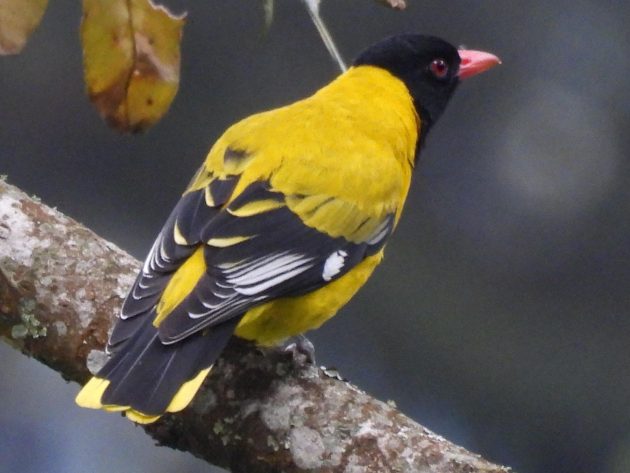
What to Bring:
- Binoculars: Essential for spotting and identifying birds. A pair with 8×42 magnification is commonly recommended.
- Field Guide: A regional bird field guide or a birding app can help with identification.
- Notebook and Pen: To record sightings and observations.
- Camera: For capturing images, if you’re into photography.
- Appropriate Clothing: Dress in layers and wear neutral colors to blend into the environment.
- Sunscreen and Insect Repellent: Depending on the season and location.
- Water and Snacks: Staying hydrated and energized is important, especially on longer outings.
If any reader of 10,000 Birds is interested in birding with you, how can they best contact you?
- Phone(WhatsApp number): +250780654591
- Instagram: hajas_jacques
- Facebook: HaJas Jacques
- E-mail: hajasjacques@gmail.com

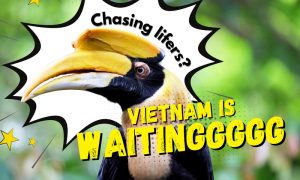









It is incredibly heartening to see young Africans deeply involved in birding and nature conservation. This continent still has so much natural beauty that nature conservation can make a real difference. Seeing young people like Jacques gives me hope that much of Africa’s beauty will be preserved.
Kai, do you accept nominations for guides we have used in recent years for thls series?
Absolutely! Just send me their contact data, and I will reach out to them.
I’m Jacques from Rwanda, thanks for thiese comments.